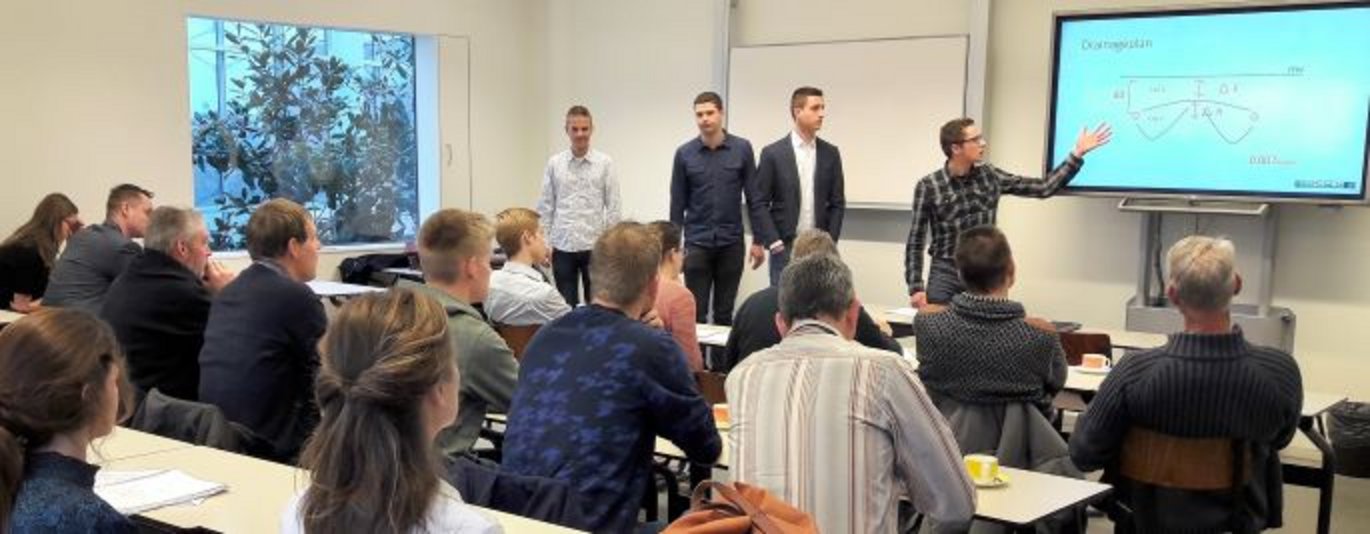The value of engaging students in soil research is underestimated
Engaging students in research projects strengthens the link between the sector and education, changes the project dynamics and provides the opportunity to update the educational system.

According to Gera van Os, professor at Aeres University of applied sciences in Wageningen, NL, ‘engaging students in soil research has a value at various levels, but is generally underestimated’. As a professor at the University of Applied Sciences, she is dedicated to conjoin research, education and the sector related to agricultural soils. She is involved in knowledge development projects to improve knowledge exchange between students and the sector. Engaging students in research projects, and along with their teachers, is essential to promote knowledge uptake and the chances of knowledge flowing through the educational system.
Demand for graduates with fundamental knowledge of agricultural soils at farm level
After a period of less interest in understanding soil processes due to the rise of chemical inputs, the interest in understanding agricultural soils is increasing. Especially the agricultural sector is in need of graduates with an understanding of agricultural soils. According to Gera: ‘research, education and the sector grew apart the past decades, and the students who recently graduated do not meet the needs of the working environment’. The sector is in need of graduates able to assess agricultural soils at farm level. Whereas developing fundamental knowledge is the focus of universities, universities of applied science focus on the translation of general knowledge into field specific advice or management recommendations. Therefore, students need to gain practical experience, and a farm is the best learning environment.
Excellent opportunity to gain experience and create long-term networks
Involving students in (research) projects at regional level, or part of programs such as EJP SOIL, provides the opportunity for them to gain hands-on-experience. Such an approach has more to offer. Not only students but also their teachers stay in touch with the world outside.
Gera states that ‘engaging students in soil (research) projects is an opportunity to update the educational system’, and an opportunity to bring their knowledge and experiences to the agricultural sector. Besides, it is Gera’s experience that engaging students brings in new perspectives, and it changes the dynamics. Rather than just gathering data, students open up new conversations.

Photo: Aeres university of applied sciences
To illustrate with an example, students were involved in a farmers’ network to assess their soil quality and write a report. Students were taking soil samples and carried out visual evaluations of the soil profile. Farmers were challenged and encouraged to think along. The open conversation between students and farmers in itself brought about new perspectives and ideas. As the experiences were positive, the regional government became enthusiastic and asked whether students would be willing to be involved in soil assessments in all future projects, creating a long-term network. It needs to be noted that gaining (reliable) data has not to be the main goal. Students gain other types of information than researchers would. They change the project dynamics, and thereby serving other goals.
The value in strong connections between the educational system and the sector
Although fundamental research is not the main activity, Gera is involved in many projects. Besides providing input as an expert, she integrates new insights generated within these projects in soil courses and arranges tasks for students. The latter is important, as there is no set structure in public funded calls for the engagement of students. Calls and therewith the (research) projects have a strong focus on outputs such as reliable results and deliverables. Currently the opportunities to engage students are limited, neglecting the added value for the students and to improve the connection between the sector and the educational system. Gera: ‘Education stays behind when not taking part in (research) projects’.
Students’ and teachers’ interest inspires to update the curriculum
The attention for agricultural soils in the curriculum is increasing, driven by students’ interests. As the attention for agricultural soils is growing, teachers are in need of and willing to get retrained. Being involved in (research) projects provides them the opportunity to gather new information and to update the course content. An online platform is developed to exchange their course material with a focus on soils and climate change, hoping these ‘novelties’ will automatically be integrated in the basics. However, the basic learning objectives are set at a higher level and focus on competences, requirements for the minimum hours spent on topics such as climate change are not yet set. The demand for actualities such as sustainable agricultural soils and the consequences of climate change is a direct result of the students’ and teachers’ interest. This resulted in the development of a new bachelor program ‘Earth and Climate’ at the Aeres University of Applied Sciences, focusing on soil quality, climate change and sustainable agricultural production.
Engaging students in (research) projects benefits the link between the sector and education, changes the project dynamics and provides the opportunity to update the educational system.
Acknowledgement:
This article is written based on an interview with Gera van Os, professor at Aeres University of applied sciences in Wageningen, NL.
Contact:
Wieke Vervuurt, EJP SOIL National communication representative, The Nederlands: wieke.vervuurt@wur.nl